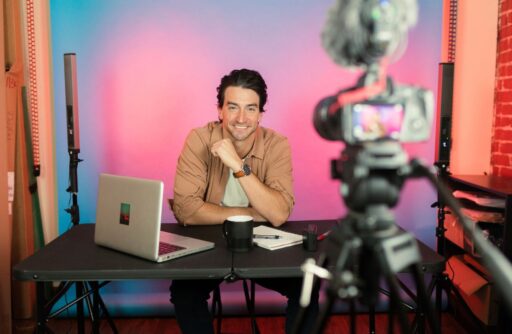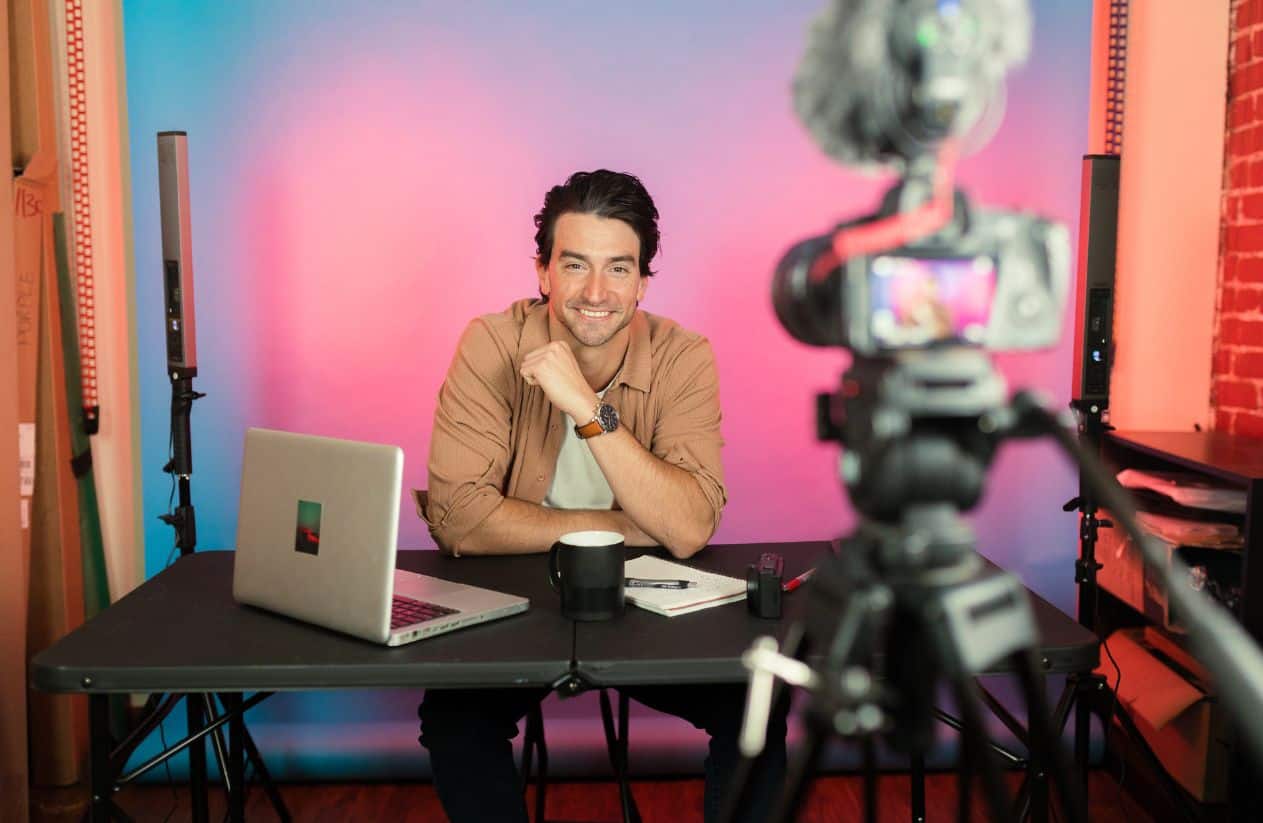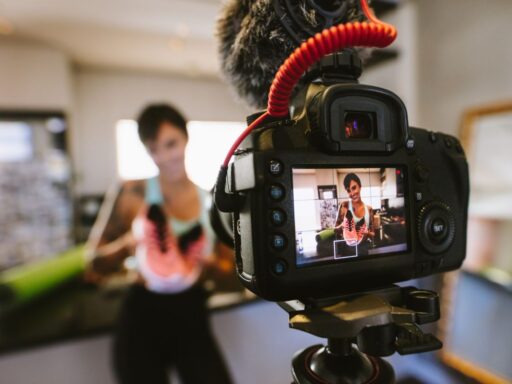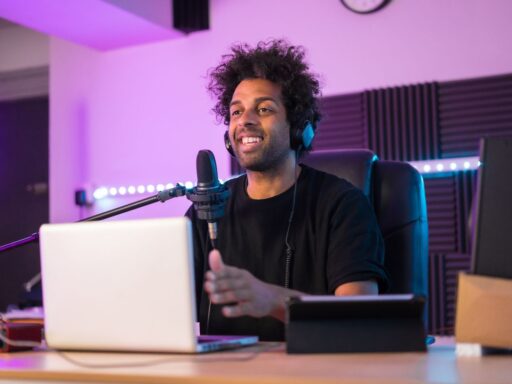Want to create a real buzz around your next event? Social media influencers and digital content creators are key. These individuals, with their engaged online communities, can significantly boost your event’s reach and create genuine excitement.
Imagine: wider audience reach, higher engagement, instant credibility, and fresh, shareable content.
From conferences and product launches to festivals, partnering with the right online personalities can make all the difference. If you’re looking to elevate your event’s marketing, you should consider how to Hire Social Media Influencers and Digital Content Creators for Your Event.
This guide breaks down how to find, work with, and maximize the impact of these influential voices, covering everything from setting clear goals to tracking your results, ensuring your event is a resounding success.
Defining Your Event Goals and Target Audience
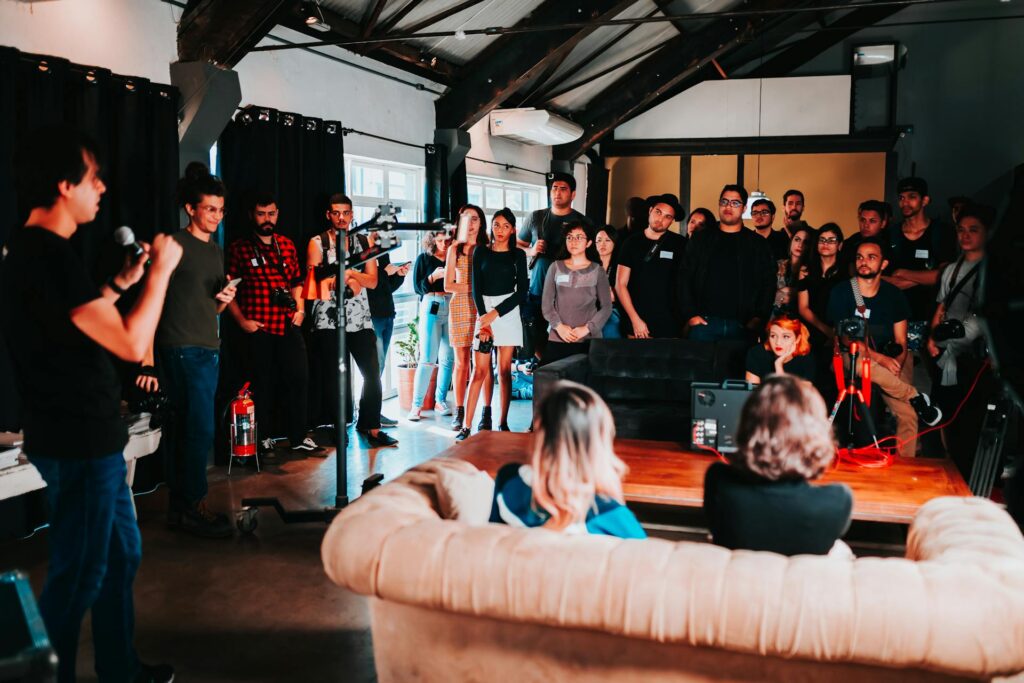
Before diving into the world of influencer marketing, it’s crucial to understand why you’re bringing influencers on board in the first place.
What do you hope to achieve? Simply wanting “more followers” isn’t enough. You need clear, measurable objectives to guide your strategy and assess its success. This is where setting SMART goals comes in.
SMART goals are:
- Specific: Clearly define what you want to achieve. Instead of “increase brand awareness,” try “increase website traffic from social media by 20%.”
- Measurable: Set quantifiable metrics to track progress. Use analytics tools to monitor website visits, social media engagement, and other relevant data.
- Achievable: Set realistic goals that are within reach. Don’t aim for a million new followers overnight if you’re just starting out.
- Relevant: Ensure your goals align with your overall event objectives. If your goal is to sell tickets, focus on metrics related to ticket sales.
- Time-bound: Set a deadline for achieving your goals. This creates a sense of urgency and helps you stay on track.
For example, a SMART goal might be: “Increase ticket sales by 15% within the two weeks leading up to the event by partnering with social media influencers.”
Once you have your goals defined, you need to understand your target audience. Who are you trying to reach with your event? What are their interests, demographics, and online behaviors? This information is essential for selecting the right influencers.
The key is alignment. The influencer’s audience should closely match your event’s target demographic. If your event is geared towards young adults interested in sustainable living, partnering with an influencer whose audience is primarily older adults interested in finance wouldn’t be effective.
By carefully considering your target audience and ensuring alignment with potential influencers, you can maximize the impact of your influencer marketing efforts and achieve your event goals.
Look at the influencer’s follower demographics, their content themes, and the engagement they receive to determine if they are a good fit.
Also check our article:What You Need to Know When Hiring a Celebrity Speaker for Corporate Events
Identifying the Right Influencers and Content Creators
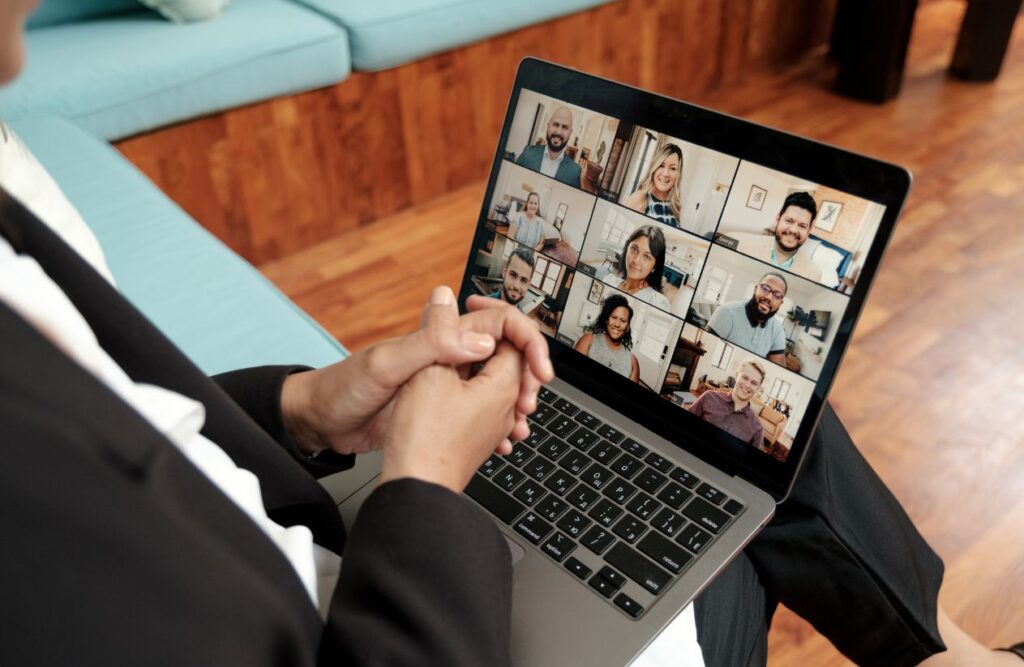
Now that you know your goals and target audience, it’s time to find the perfect influencers and content creators to partner with. Not all influencers are created equal. They generally fall into three categories:
- Macro-influencers: These are your celebrity-level influencers with huge followings (often hundreds of thousands or millions). They offer massive reach but can be expensive and may have lower engagement rates compared to smaller influencers.
- Micro-influencers: These individuals have a more niche audience (typically between 10,000 and 100,000 followers) and often boast higher engagement rates due to their closer connection with their followers. They offer a good balance of reach and affordability.
- Nano-influencers: With smaller, highly engaged audiences (often under 10,000 followers), nano-influencers are often considered experts within their specific niche. They offer the highest engagement rates and a strong sense of community but have limited reach.
Finding potential influencers can be done in several ways:
- Social media searches: Use relevant keywords and hashtags related to your event and industry to discover influencers who are already creating content in your space.
- Influencer marketing platforms: These platforms (like Upfluence, AspireIQ, or Grin) offer databases of influencers, allowing you to filter by niche, audience demographics, and other criteria.
- Event-specific hashtags: If your event has a dedicated hashtag, search it to see who is already talking about it or similar events.
When evaluating potential influencers, consider these key metrics:
- Engagement rate: This measures the level of interaction an influencer receives on their content (likes, comments, shares). A high engagement rate indicates an active and interested audience.
- Reach: This refers to the potential number of people who can see an influencer’s content. While reach is important, it’s not the only factor.
- Audience demographics: Make sure the influencer’s audience aligns with your target audience in terms of age, location, interests, and other relevant demographics.
- Content quality: Evaluate the quality and consistency of the influencer’s content. Does it resonate with your brand and event? Is it visually appealing and engaging?
- Brand alignment: Does the influencer’s personal brand and values align with your event and overall brand image?
Finally, it’s crucial to check for authenticity and past collaborations. Look into their past partnerships to see if they’ve worked with similar brands or events. This can give you insights into their professionalism and effectiveness.
If you’re planning an event and want to maximize its impact, you should seriously consider how to Hire Social Media Influencers and Digital Content Creators for Your Event.
This thorough vetting process will ensure you partner with influencers who are a good fit for your event and will deliver the desired results.
Reaching Out and Negotiating with Influencers

Once you’ve identified potential influencers, it’s time to reach out and start the conversation. A personalized and professional approach is key. Avoid generic, copy-pasted messages. Instead, show that you’ve done your research and understand their work.
Here’s a template for an initial outreach email:
Subject: Collaboration Opportunity: [Your Event Name]
Hi [Influencer Name],
My name is [Your Name] from [Your Company/Event]. I’ve been a long-time follower of your work on [Platform] and particularly enjoyed your [mention a specific post or piece of content].
We’re organizing [Your Event Name], a [type of event] focused on [event theme/topic], taking place on [date] at [location]. We believe your audience would be highly interested in this event, and we’d love to explore a potential collaboration.
We envision [briefly describe the collaboration idea, e.g., attending the event and sharing live updates, creating pre-event content, etc.].
Would you be open to a brief chat to discuss this further?
Thanks,
[Your Name] [Your Title] [Your Contact Information]
Best practices for outreach:
- Personalize your message: Mention something specific you admire about their work.
- Be clear and concise: State your purpose and what you’re offering.
- Keep it professional: Use proper grammar and spelling.
- Provide context: Briefly explain your event and its target audience.
Clear communication and setting expectations upfront are crucial. Discuss the scope of work, timelines, deliverables, and compensation early in the conversation. This will prevent misunderstandings down the line.
Compensation models vary:
- Flat fee: A one-time payment for a specific set of deliverables.
- Per post: Payment for each piece of content created (e.g., Instagram post, story, tweet).
- Affiliate marketing: The influencer receives a commission for each sale or lead generated through their unique referral link.
- In-kind exchanges: Providing free tickets, products, or services in exchange for promotion.
Negotiating contracts and outlining deliverables:
A contract is essential to protect both parties. It should clearly outline:
- Scope of work: What the influencer is expected to do.
- Deliverables: Specific content to be created (e.g., number of posts, stories, videos).
- Timelines: Deadlines for content creation and posting.
- Compensation: Payment terms and schedule.
- Usage rights: How the content can be used after the event.
- Exclusivity clauses: Any restrictions on the influencer working with competitors.
Be prepared to negotiate and find a mutually beneficial agreement. Clear communication and a well-defined contract are essential for a successful influencer partnership.
Managing Influencers During and After the Event

Effective management of influencers during and after your event is just as crucial as the initial outreach and negotiation. This stage ensures a smooth collaboration and maximizes your return on investment.
Pre-event communication and coordination:
Before the event, schedule a briefing with your influencers. This is an opportunity to:
- Share the event schedule: Provide a detailed itinerary of key activities and timings.
- Provide content guidelines: Outline any specific themes, messaging, or hashtags you want them to use.
- Discuss logistics: Confirm arrival times, check-in procedures, and any other relevant details.
- Answer questions: Address any queries the influencers may have.
Clear communication and preparation will help ensure everyone is on the same page.
Facilitating content creation during the event:
Make it easy for influencers to create high-quality content by:
- Designating specific areas: Provide dedicated spaces for them to film, take photos, or conduct interviews.
- Providing access to resources: Offer Wi-Fi access, charging stations, and any other necessary equipment.
- Introducing them to key people: Connect them with speakers, attendees, or other relevant individuals.
Post-event follow-up:
After the event, maintain communication with your influencers. This includes:
- Thanking them for their participation: Express your appreciation for their contributions.
- Sharing post-event reports: Provide data on the performance of their content (reach, engagement, website traffic).
- Maintaining relationships: Stay in touch for potential future collaborations.
Measuring ROI and analyzing the success of the campaign:
Measuring the return on investment (ROI) is crucial to determine the effectiveness of your influencer marketing efforts. Key metrics to track include:
- Reach and impressions: How many people saw the influencer’s content?
- Engagement (likes, comments, shares): How did people interact with the content?
- Website traffic: Did the influencer’s content drive traffic to your event website?
- Ticket sales or registrations: Did the campaign contribute to increased sales or registrations?
- Brand mentions and social media sentiment: How did people talk about your event online?
Analyzing this data will give you valuable insights into what worked well and what could be improved for future campaigns. If you want to ensure a successful outcome and maximize your event’s impact, remember that effectively managing the process of hiring social media influencers and digital content creators for your event, both during and after the event itself, is crucial.
This comprehensive approach ensures a strong return on your investment and fosters valuable long-term relationships.
Legal Considerations and Best Practices

Navigating the legal landscape of influencer marketing is essential for both your event and the influencers you partner with. Ignoring these aspects can lead to legal trouble and damage your reputation.
Disclosure requirements (FTC guidelines):
The Federal Trade Commission (FTC) has strict guidelines regarding sponsored content. Influencers must clearly and conspicuously disclose their relationship with your event when promoting it.
This means using clear and unambiguous language like “#ad,” “#sponsored,” or “#partner” in a prominent location within the content (e.g., at the beginning of a caption or within the video itself).
Simply using hashtags like “#thanks” or “#collab” is not sufficient. These disclosures must be visible regardless of the platform used (Instagram, TikTok, YouTube, etc.).
Importance of clear contracts and usage rights:
As mentioned earlier, a well-drafted contract is crucial. In addition to outlining deliverables and compensation, it should clearly define usage rights for the content created. This includes:
- How the content can be used: Can you use the content on your website, social media channels, or in other marketing materials?
- Duration of usage rights: How long can you use the content?
- Exclusivity: Are there any restrictions on the influencer using the content for other purposes?
Also check our article about “Tips for Working with Celebrities at Private Events”
Having clear usage rights protects both you and the influencer and prevents any future disputes.
General best practices for ethical influencer marketing:
- Transparency: Be upfront about the partnership with the influencer.
- Authenticity: Choose influencers whose values and audience align with your event and brand.
- Respect for audience: Encourage influencers to create genuine and engaging content that resonates with their followers.
- Avoid misleading claims: Ensure all claims made by influencers about your event are truthful and substantiated.
- Monitor compliance: Keep an eye on the content created by influencers to ensure they are adhering to FTC guidelines and the terms of your contract.
By adhering to these legal considerations and best practices, you can ensure your influencer marketing campaigns are both effective and ethical, building trust with your audience and avoiding potential legal issues.
Conclusion
Leveraging social media influencers and digital content creators can transform your event’s success. This guide has provided a roadmap, from setting clear goals and identifying the right influencers to managing collaborations effectively. Aligning target audiences, establishing clear communication, and measuring results are key. Remember, successful influencer marketing hinges on strategic planning and execution.
If you want to elevate your event’s visibility, engagement, and overall impact, you must understand how to Hire Social Media Influencers and Digital Content Creators for Your Event.
By implementing these strategies, you’ll create a memorable experience, reach a wider audience, and build valuable relationships within your industry.
If you are looking for talents for your event, check the list below as we featured our recommended talents that you can book or hire:
